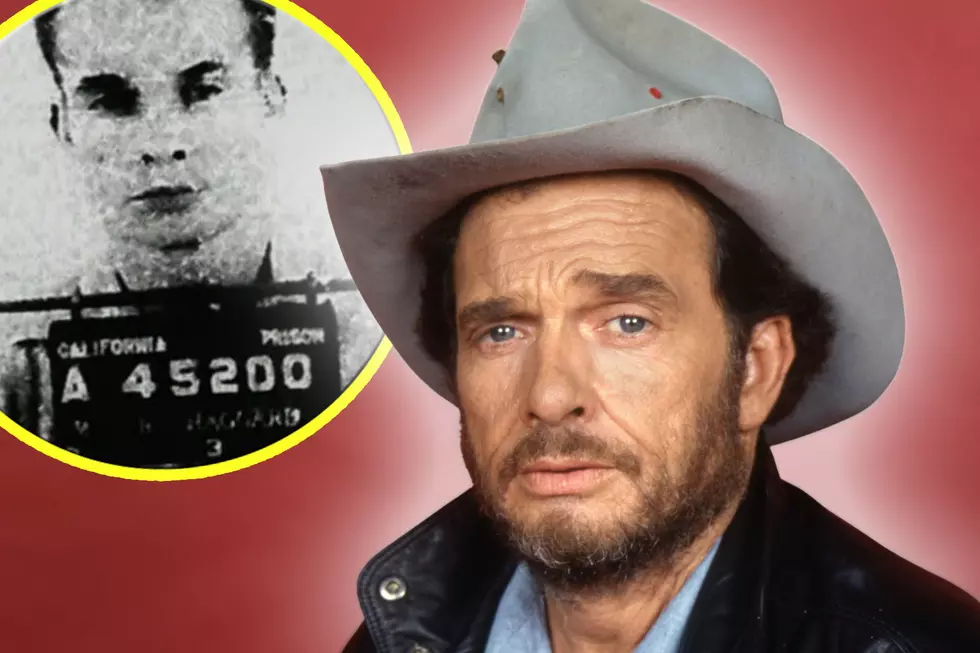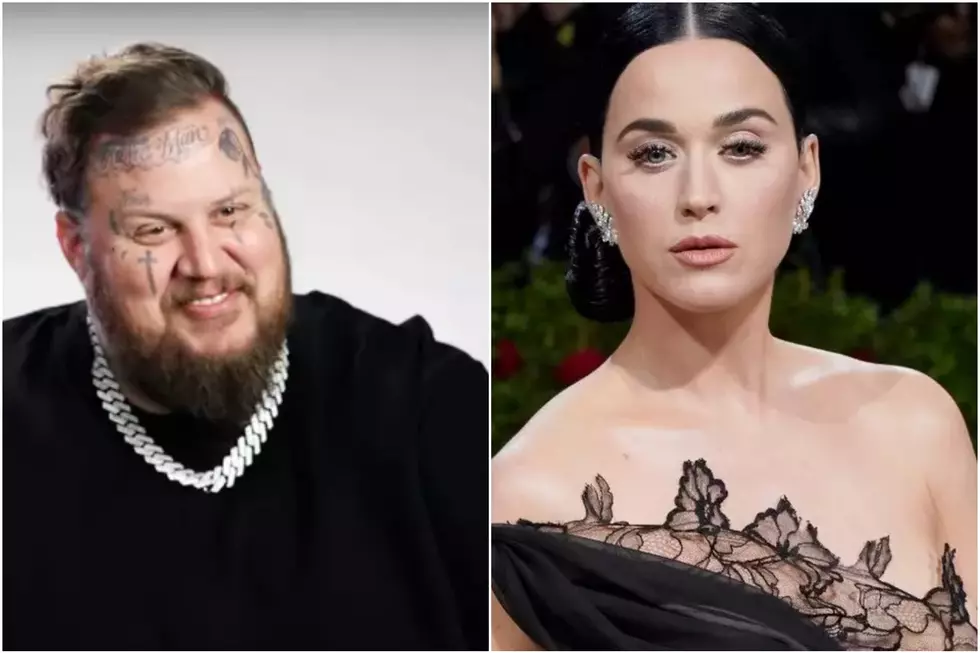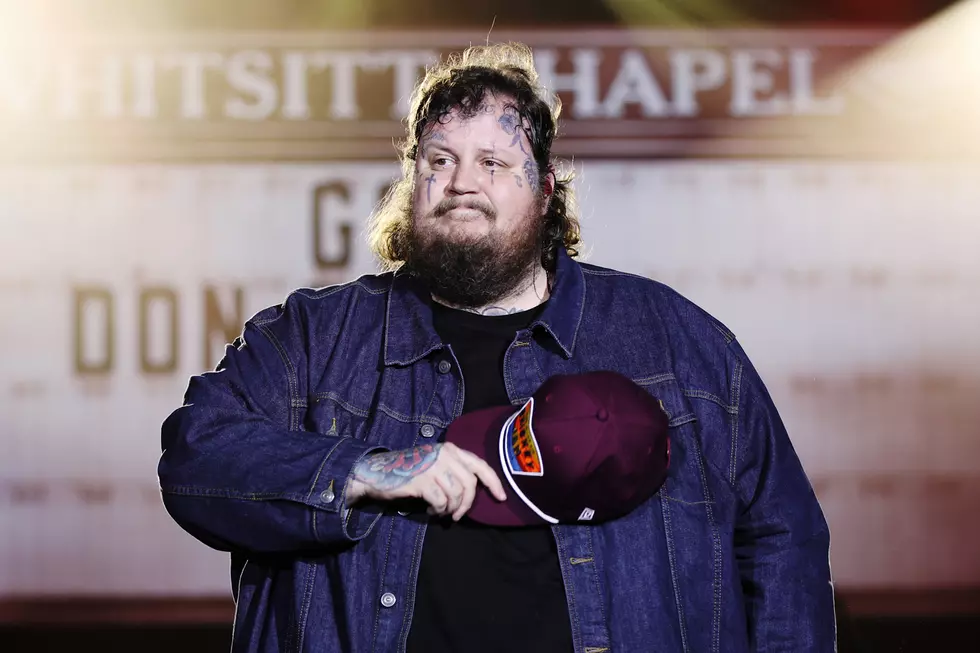Meet Struggle Jennings, the Man Jelly Roll Can’t Stop Talking About
Struggle Jennings won't hesitate to tell you about the moment he chose to turn his life around. It's why he's here, in every sense of the word.
"I was sitting in a prison cell and I was watching my family and my life and my world that I built completely crumble outside of the walls," the Nashville rapper-turned-country-singer confesses.
"I had completely no control. My kids ended up in foster care, mother of my children overdosed and passed away. I realized there was nothing I could do to control what was happening on the outside. All I could do was control how I came out and who I was. And I was over it."
This transformation came about a decade ago, when Jennings (real name William Harness) was at the Northeast Correctional Complex in Mountain City, Tenn. He was looking at 13 years in prison after being arrested on — as he'd later tell All Hip Hop — charges of conspiracy for very large quantities of cocaine and marijuana.
Ultimately he'd serve less than half that time, but it was time well-served, if you judge the process by the results. Jennings says he lost more than 100 pounds and tore down a value system that included concepts like "it's alright to do a little wrong for the right reasons." He began to recognize that every good and bad thing that happened in his life — especially events that led to imprisonment — were results of his decisions.
“I was a drug dealer for a long time, and I felt like I didn’t really have a victim," he shares. "I didn’t feel like I was out there hurting anybody. I was trying to justify that I was doing it for my kids. In the end, they (seven of them total) became the victims.”
Songwriting became an outlet. Long hailed as one of Nashville's top rappers, Jennings started to lean into his country roots with albums like Waylon & Willie. This trilogy of Jelly Roll collaborations opened more doors for him, and he walked through them when it felt right. Through it all, he tried to remain true to values learned from his grandfather, country legend Waylon Jennings. The two have more in common than you'd guess.
Jennings spoke to Taste of Country from his home in the Nashville area. In December he released a new song called "Drinking Alone," from an album called Monte Carlo, which he expects to release this April. Billy Ray Cyrus and Lorrie Morgan are country artists he confirmed to be collaborating with him on the project.
Taste of Country: Jelly Roll (talking to ToC in December) and Brantley Gilbert (one month prior) both mentioned you as the next artist with a chance to break into country music. Who was the first person who opened a door for you to elevate your career on a mainstream level?
Struggle Jennings: It’s been a long ride, man. I started in the early 2000s just blending the genres, just out of what I felt was right and what was real to me, growing up in the ‘80s loving rap music, but having the soundtrack in the backdrop of country and Southern rock. Then I went away for a little while at the start of just starting to release that music, and having that career.
Coming home, Yelawolf was playing a big role in that movement. Jelly Roll was playing a huge part in that movement. I just came in and fell in line. It was kind of what I began and helped birth. Over the last few years, what me and Jelly did, the Waylon & Willie series, which just opened so many doors.
"Watching my grandfather and my dad put those cowboy boots on, and the cowboy hat ... It was always a larger-than-life persona, that cowboy look. It was something that I always loved, so when I did finally decide to embrace it and not be confined to what was cool, it felt real and it felt whole, and it made me feel like I was being who I really wanted to be."
So I guess it hasn’t been one person as much as it’s been a movement of people. Of course there’s that whole country-rap genre — it gets really misconstrued and the lines get blurred real easily. But what me and Jelly and guys like Yelawolf have done, and continue to do, I think there is just no running from it.
To what degree are you a student of Waylon Jennings' music and catalog?
He was my grandfather. My mother sang backup (for him) the first 10 years of my life, so she was gone a lot, but in the summertime or chances when I wasn’t in school, I’d get to go on the road. So I got it firsthand, backstage, watching him walk out on that stage. More or less a student of him as a man and who he was as a father and grandfather and artist, than just the music itself.
What similarities do you see between his music and your music?
We definitely aren’t confined to any boxes. Back then they said he wasn’t country music. It was too rock 'n' roll, too this, too that, too edgy. Now if you think about country music or what somebody says is "real" country music, they mention Waylon. I think we’ll have the same effect, me and the guys doing what we do. It’s authentic and it’s real and it’s not confined to a box.
How would you describe the music you're making for the Monte Carlo album?
The best way to explain the album is, I bought an ’84 Monte Carlo SS. When I got in it, started it up, felt that nostalgia, smelled the motor, smelled the seats — the static-y radio you can barely get a channel to lock all the way in — it brought me back to this moment … to a place, amongst all the chaos of the world and this industry and my career and being a father and husband and having a lot on my shoulders, the simplicity of just being in that car. There’s not even a plug to plug your phone up — it was peaceful. I wanted an album that embodied that nostalgia.
Vocally, your voice is different today than it was 10 or 12 years ago. What changed to develop that raspy sound?
I couldn’t tell you. I fell like when I was bigger — because I lost 130 pounds when I was in prison — my voice was actually higher when I was bigger. Then, the older I get and the more s--t I go through, I don’t know what it is, it’s gotten a lot more growly.
The 30 Best Country Rap Songs of All Time, Ranked
More From Taste of Country

![Jelly Roll Should Rethink His Stance on This Powerful Unreleased Song [Watch]](http://townsquare.media/site/204/files/2024/04/attachment-Jelly-Roll-Grand-Ole-Opry-Unreleased-Song-Liar.jpg?w=980&q=75)


![Jelly Roll Goes Full Dad Mode With Fan’s Baby and It’s So Cute It Hurts [Watch]](http://townsquare.media/site/204/files/2024/04/attachment-Jelly-Roll1.jpg?w=980&q=75)



![Jelly Roll, ‘American Idol’ Contestant Mia Matthews Cry Together During Moment of Grief [Watch]](http://townsquare.media/site/204/files/2024/04/attachment-Jelly-Roll-Mia-Matthews-American-Idol.jpg?w=980&q=75)
